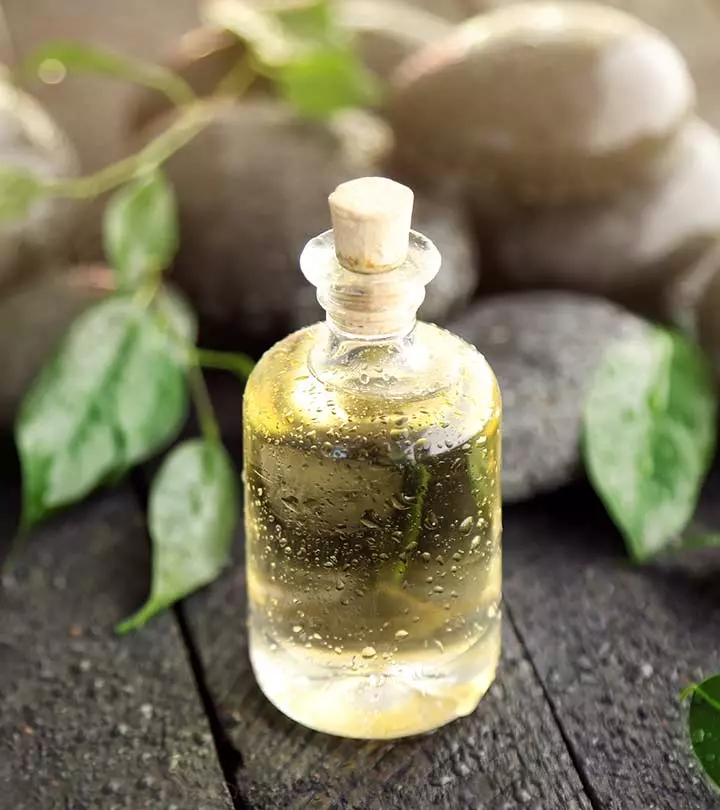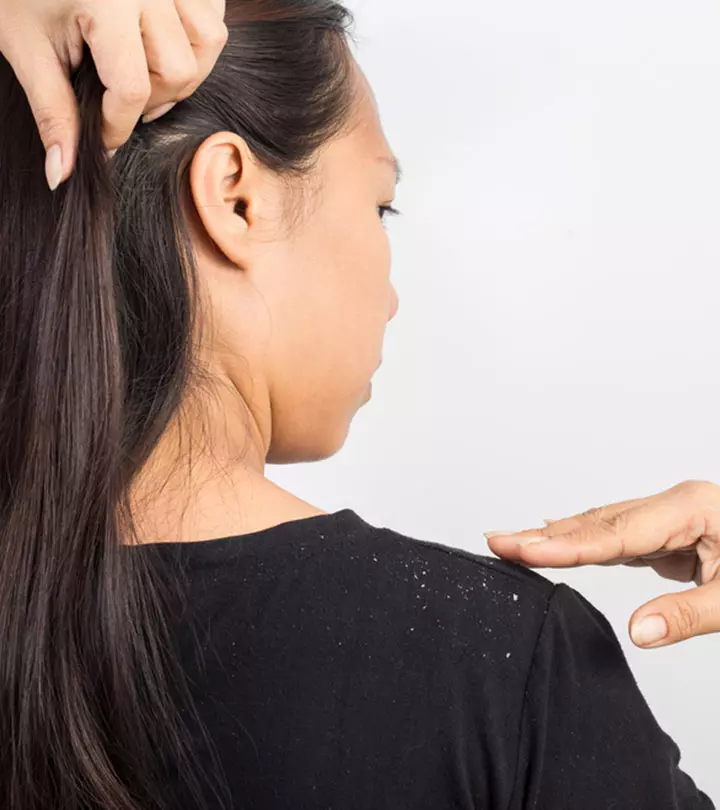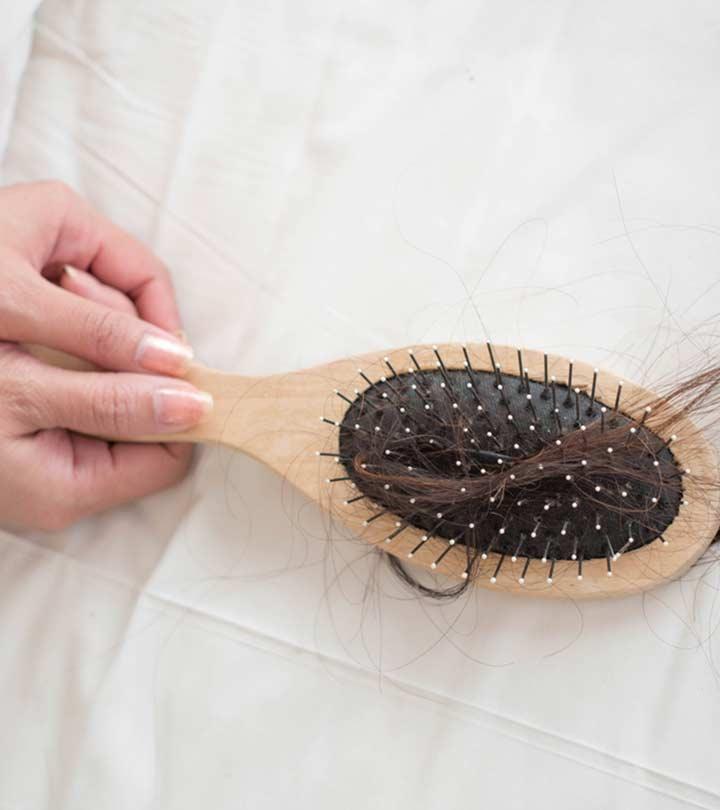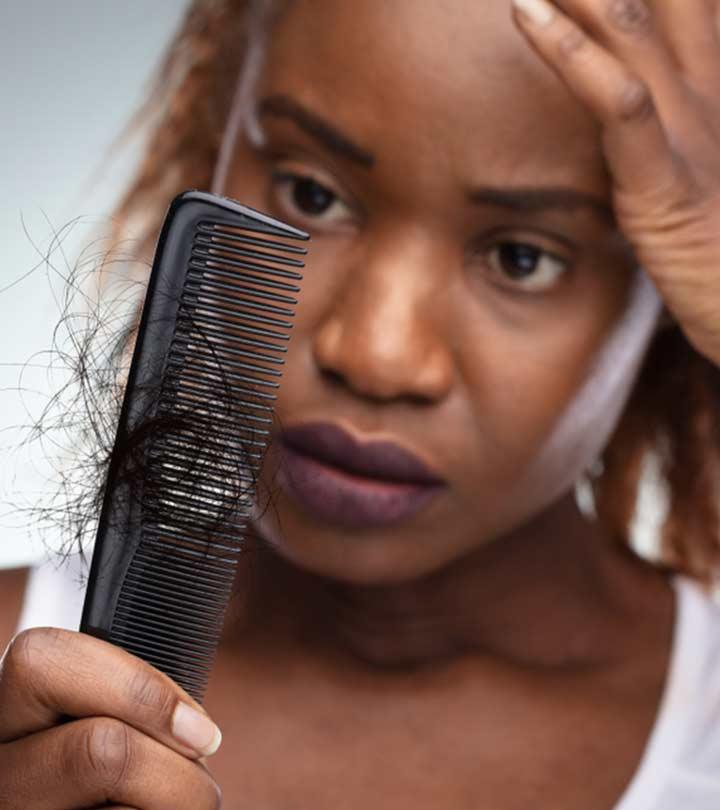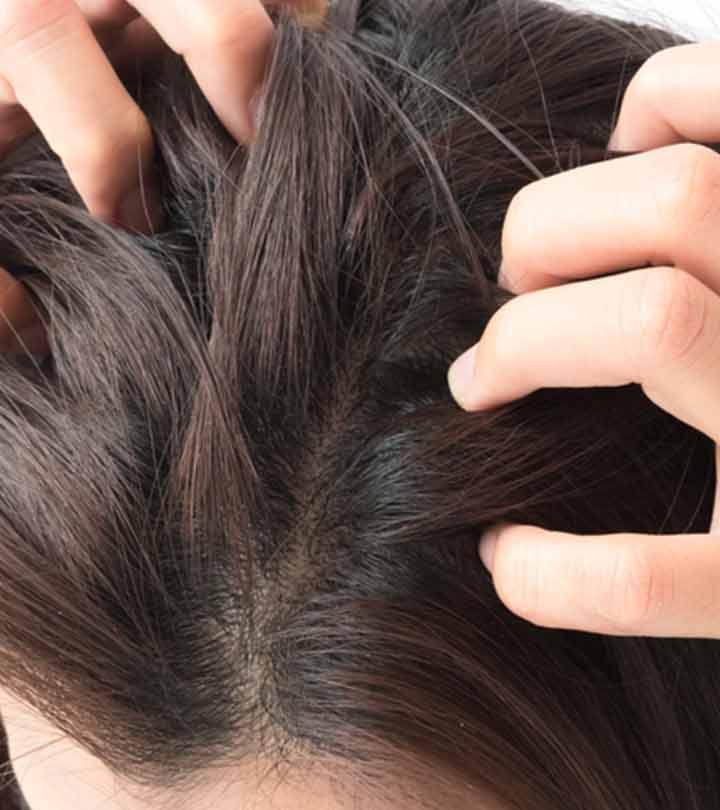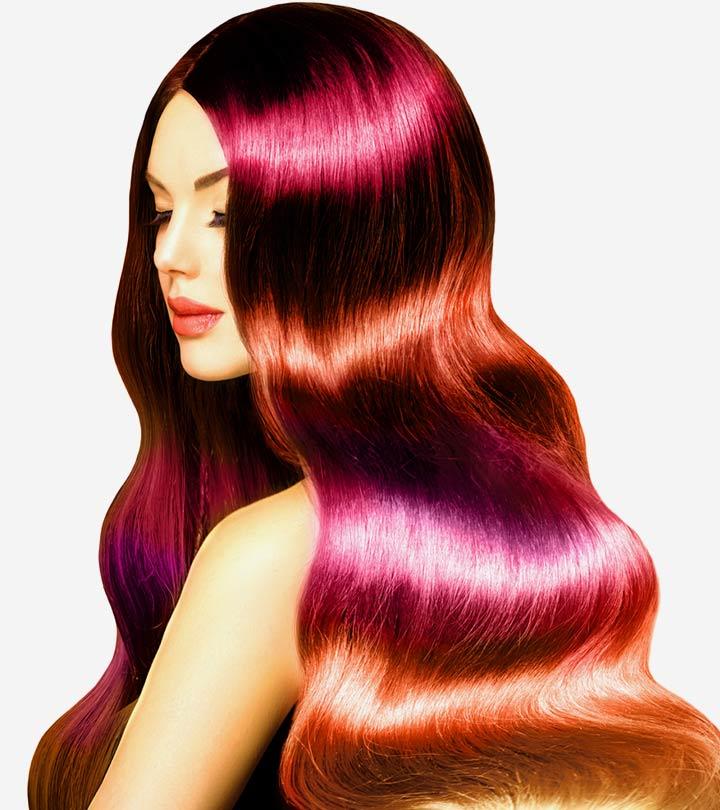Sulfur For Hair Growth: Truth Or Myth?
This abudantly available mineral does a lot of good to your hair than you can imagine.

Image: Shutterstock
Have you heard of the benefits of using sulfur for hair growth? This hair care trend has lately been making the rounds on the internet. But is it effective? Our body requires various nutrients, including minerals like sulfur, for proper functioning. Although it is mostly known for its antioxidant and anti-inflammatory properties, rumor is that sulfur has many benefits for hair growth and good scalp health. But is there any truth to this? Keep reading to find out if sulfur can really stimulate hair growth and how you can use it effectively if it does.
In This Article
What Is Sulfur?
Sulfur is the third-most abundant mineral in the human body after calcium and phosphorus (1).It is an important dietary source needed for nutrition, metabolism, synthesizing proteins and enzymes, and balancing oxidative stress and inflammation (2).
But does sulfur help with hair growth? Let us understand in the next section.
How Does Sulfur Affect Hair Growth?
Methylsulfonylmethane (MSM), an organosulfur compoundi A compound containing sulfur that occurs in our body in the form of essential amino acids, enzymes, and hormones. , is also popular as an effective nutritional supplement that supports the growth and overall health of hair, skin, and nails. It contains keratini A fibrous protein that forms the structure of your hair and the outermost layers of your skin and regulates cell growth. , a major building block of hair and nails (3).
MSM helps donate sulfur to keratin, strengthening the bonds between the keratin molecules in the hair (3). This way, the sulfur strengthens hair and boosts its elasticity.
Tiki, a blogger, shares her sulfur hair growth oil recipe which includes ingredients such as sulfur powder, and jojoba, castor, and olive oil that are for their benefits for hair. Of her own personal experience of using it, she writes in one of her blog posts, “I’ve had great results and the recipe has been in rotation for years. Still to this day, if I need an extra boost in my hair growth, I mix up a batch of the recipe and go for it (i).”
This does show that sulfur can promote hair health. But are you getting enough of it?
Are You Getting Enough Sulfur?
Symptoms of sulfur deficiency include dry/brittle hair, skin, and nails. Some research shows that the elderly may not be receiving sufficient sulfur (4).
There are three ways you can include enough sulfur in your diet/routine:
A. Have A Sulfur-Rich Diet
Have a protein-rich diet. Protein contains 3 to 6 percent sulfur amino acids as per studies (4). The following foods promote natural keratin synthesis (4):
- fish
- high quality, grass-fed beef, and poultry
- eggs
- Brussels sprouts
- asparagus
- legumes
- garlic
- kale
- onion
- wheat germ
B. Take MSM Supplements
These supplements are available at most over-the-counter stores. However, speak to your dermatologist before you take them. Do not self-prescribe any supplement.
C. Use A DIY Sulfur Oil Recipe
Simple DIY Sulfur Oil Recipes For Hair Growth
In this section, we will share a few recipes where you can incorporate sulfur oil into natural remedies for regular hair care and maintenance.
Recipe 1
Ingredients:
- 1 teaspoon of sublimed sulfur powder
- 4 oz. of jojobai An evergreen shrub that bears seeds containing oil that possesses healing and lubricating properties. oil
- 2 oz. of Jamaican black castor oil
- 2 oz. of extra virgin olive oil
- 4 to 5 drops of rosemary essential oil
- 4 to 5 drops of peppermint essential oil
Directions
- Use an applicator bottle to mix all the ingredients. The nozzle also allows you to apply the mixture to the scalp easily.
- Apply to your scalp (without touching your hair length) and gently massage section by section so that the mixture penetrates the hair follicles.
- Leave it on for at least 30 minutes (or overnight) before washing with cool water. You can wear a shower cap if you intend to keep it on overnight.
 Did You Know?
Did You Know?Recipe 2
Ingredients
- 1 teaspoon of sulfur powder
- 1 cup of coconut/castor oil
- 10 drops of your favorite essential oil, such as that of lavender, peppermint, or tea tree (optional)
Directions
- Mix all ingredients in an applicator bottle. Use a funnel to avoid wastage.
- Shake it and apply the mixture to your scalp.
- Gently dab the oil on your roots. Ensure not to apply excess of it.
- Massage gently into your scalp.
- Leave it on overnight or rinse after 30 minutes.
 Quick Tip
Quick TipRecipe 3
Ingredients
- 1 teaspoon of sulfur powder
- 2 oz. of extra virgin olive oil
- 4 oz. of jojoba oil
- 2 oz. of castor oil
- 4 drops of peppermint essential oil
- 4 drops of rosemary essential oil
Directions
- Mix all ingredients in an applicator bottle. Use a funnel to avoid wastage.
- Shake it and apply the mixture to your scalp.
- Gently dab the oil on your roots. Ensure not to apply excess of it.
- Massage gently into your scalp.
- Leave it on overnight or rinse after 30 minutes.
You also must keep the following pointers in mind while trying out the DIY recipes.
How To Use The Hair Growth Oil Mix: Tips And Recommendations
- Be mindful of shaking the applicator bottle before use. This evenly distributes the sulfur.
- Do a patch test on a smaller area to check if you are allergic to sulfur.
- Do not use sulfur in higher proportions. Do not exceed the recommended amounts.
- Start by taking half the recommended amount of sulfur and gradually increase the quantity.
After understanding the benefits of sulfur for hair, let’s have a look at the side effects.
Side Effects Of Sulfur On Hair
Sulfur, often used in hair care products to combat various scalp conditions, such as dandruff, seborrheic dermatitis, and psoriasis due to its antifungal properties, can also lead to some adverse effects. Although there is limited research on this, excessive use of sulfur-containing products can dry out the scalp and hair, leading to irritation and itchiness. Some sulfur compounds often emit a distinct odor, which can be bothersome to some individuals, while others may experience allergic reactions like redness, swelling, or rash when using such products. It’s crucial to use sulfur products as directed, and to consult a dermatologist if you experience any adverse reactions, to ensure appropriate usage and minimize potential side effects.
Infographic: Sulfur Oil Recipes To Accelerate Hair Growth
Sulfur is becoming increasingly popular for its skin, beauty, and hair benefits. It helps strengthen the hair and improves elasticity by boosting keratin in the hair strands. One easy way to reap the advantages of this mineral is by using it in massage oils for your hair. Check out the infographic below for three sulfur oil recipes that will help your hair grow faster.
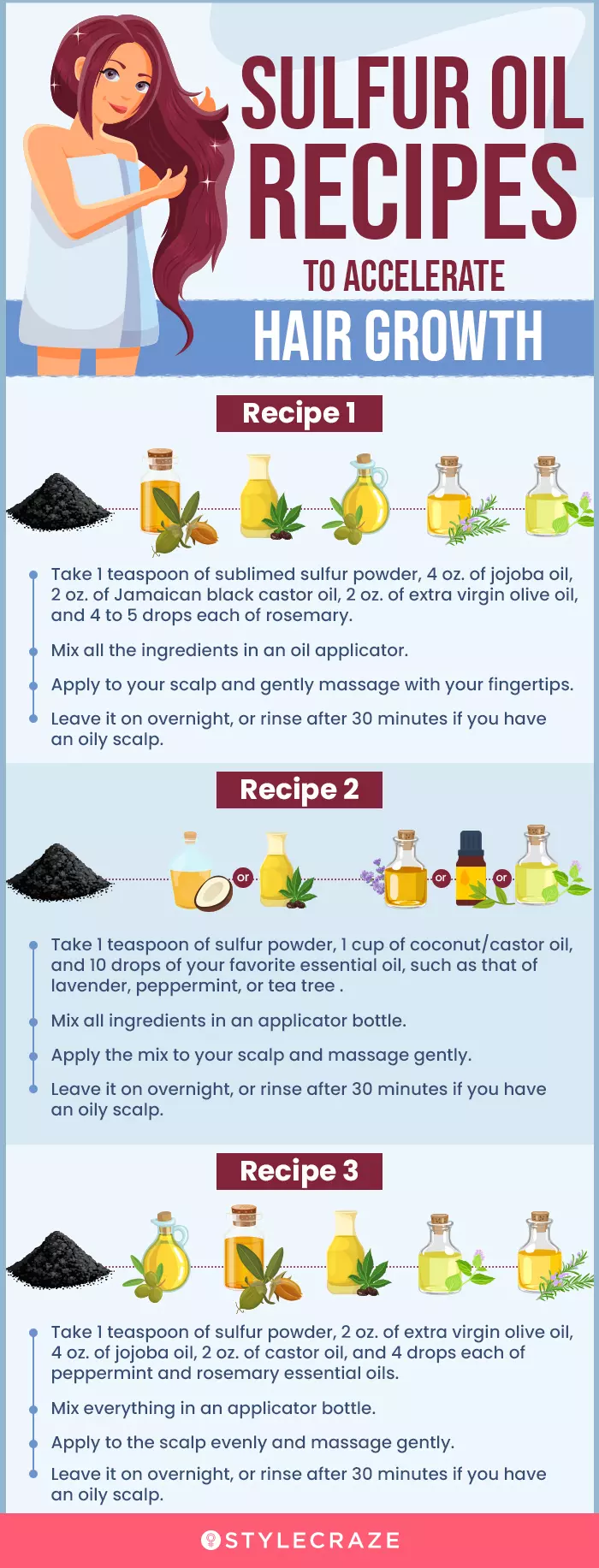
Illustration: StyleCraze Design Team
The benefits of sulfur for hair growth are indirect. It is an important component of keratin, the protein that makes up your hair and nails. Low levels of sulfur results in brittle hair. Hence, you need to add sulfur to your diet. Incorporating sulfur oil into your hair care regimen may minimize hair loss and promote natural hair growth as well. Though more research is needed to fully understand its benefits, anecdotal evidence suggests that you can apply moderate amounts of it to your hair safely. If you experience any adverse effects, stop using it immediately and seek medical advice.
Frequently Asked Questions
Is sulfur water good for your hair?
Although anecdotal evidence suggests that consuming sulfur or soaking in sulfur water has hair benefits, there is little scientific data to support the claim.
What is the difference between sulfur and sulfate?
Sulfates are a type of substance known as surfactants that are crucial to the efficiency of shampoos. Surfactants reduce the surface tension of the liquid in which they are present, making it simpler to mix with water and form a foam.
Sulfur is an element that has many advantages for the hair, particularly for people with brittle, dry hair. Sulfur is supposed to help strengthen the hair and improve its elasticity. It is also believed that taking sulfur supplements may assist in enhancing the overall hair health because keratin, a crucial protein in the hair, is composed of sulfur. However, more research is required to understand the benefits of sulfur for hair.
Can sulfur also help with scalp issues, such as dandruff or inflammation?
Yes, studies suggest that sulfur alone or in combination with sodium sulfacetamide may help treat scalp issues such as dandruff and seborrheic dermatitis due to its antifungal, antibacterial, and keratolytic properties (5).
How can I properly store sulfur-based hair growth products to ensure maximum effectiveness?
Store sulfur-based hair growth products in a container at room temperature and away from direct light and heat.
Can sulfur be used for all hair types and textures?
Sulfur is beneficial for repairing dry, damaged, or brittle hair. It can be used by all hair types. However, there is not enough research to support the use of sulfur on different hair types.
What should I look for when choosing a sulfur-based hair growth product?
You should choose a product that contains argan oil or antioxidants to provide proper conditioning to your strands.
Does sulfur change hair color?
If you use sulfur on your dyed hair, then it will strip off the hair color without causing any change to the natural color of your strands.
Key Takeaways
- Sulfur may strengthen the hair and boost its elasticity.
- You can get sulfur through dietary sources that are rich in protein, sulfur supplements or sulfur enriched scalp oil.
- Sulfur oil should only be applied to the scalp and can be left overnight or rinsed within half an hour.

Image: Stable Diffusion/StyleCraze Design Team
Unveil the secret of using sulfur 8 and cloves for hair growth. Watch this interesting video for a step-by-step guide on how to do it to get strong and healthy locks.
Personal Experience: Source
StyleCraze's articles are interwoven with authentic personal narratives that provide depth and resonance to our content. Below are the sources of the personal accounts referenced in this article.
i. Sulfur hair growth oil recipehttps://www.justtiki.com/sulfur-challenge/
References
Articles on StyleCraze are backed by verified information from peer-reviewed and academic research papers, reputed organizations, research institutions, and medical associations to ensure accuracy and relevance. Read our editorial policy to learn more.
- Sulfur in human nutrition and applications in medicine,
https://pubmed.ncbi.nlm.nih.gov/11896744/#:~:text=Sulfur%20is%20the%20sixth%20most,homocysteine%2C%20homocystine%2C%20and%20taurine - Chemistry and Biochemistry of Sulfur Natural Compounds: Key Intermediates of Metabolism and Redox Biology.
https://www.ecronicon.com/ecnu/pdf/ECNU-14-00660.pdf - Beneficial Effects of a Sulfur-Containing Supplement on Hair and Nail Condition,
https://www.naturalmedicinejournal.com/journal/2019-11/beneficial-effects-sulfur-containing-supplement-hair-and-nail-condition - Are we getting enough sulfur in our diet?,
https://www.ncbi.nlm.nih.gov/pmc/articles/PMC2198910/ - The use of sulfur in dermatology
https://pubmed.ncbi.nlm.nih.gov/15303787/
Read full bio of Sergio R. Cardona Perez
Read full bio of Eshna Das
Read full bio of Monomita Chakraborty














